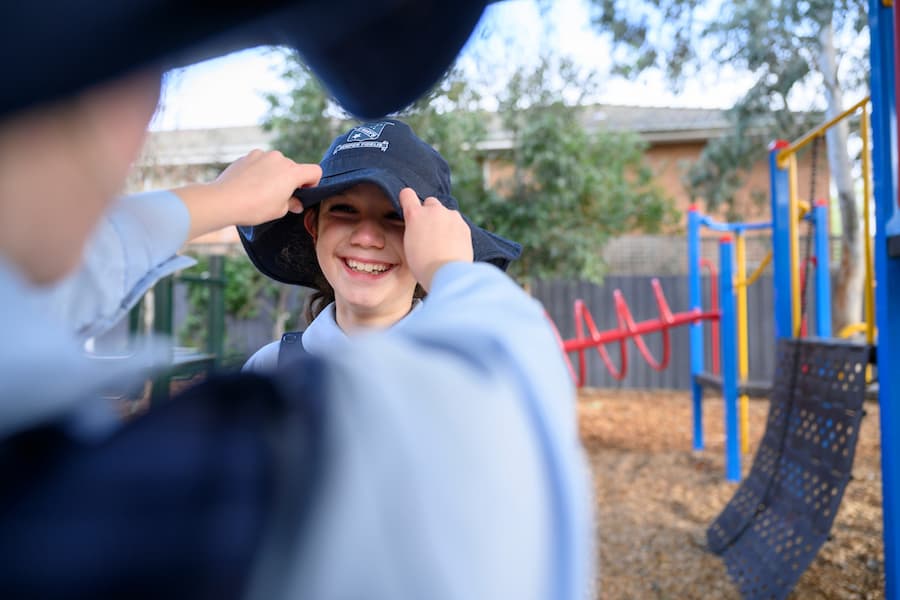SunSmart schools and early childhood program
Cancer Council Tasmania

Overexposure to ultraviolet (UV) radiation in childhood and adolescence greatly increases the chances of developing skin cancer later in life. Melanoma is the most common cancer in young Australians aged 15 – 29 years.
The free SunSmart Program aims to minimise overexposure to UV from the sun by providing schools and early childhood services with a SunSmart policy, resources, and education. Schools and early childhood services, in partnership with families and their communities, can play an important role in reducing skin cancer. These environments can influence sun protection practices by creating SunSmart environments and guiding behaviours through education and role modelling.
SunSmart early childhood program
The Australian Children’s Education and Care Quality Authority requires all early childhood services to have a sun protection policy. Early childhood services have a duty of care to minimise children’s exposure to the sun and provide an environment that encourages sun protection behaviours.
The SunSmart Program assists services to develop and maintain a SunSmart policy. Becoming a SunSmart service demonstrates a commitment to the health and well-being of children and staff.
Here is a sample policy that can be used on its own or modified to meet the context of the service.
Each service is responsible for executing its own policy within the service. Cancer Council Tasmania requires SunSmart services to review their policy every 3 years to maintain their SunSmart membership.
Contact us today to develop or renew your SunSmart policy [email protected].
SunSmart schools program
All schools are required to implement a sun protection policy. Schools have a duty of care to minimise students’ exposure to the sun and provide an environment that encourages sun protection behaviours.
The SunSmart Program assists schools to develop and maintain a SunSmart policy. Becoming a SunSmart school demonstrates a commitment to the health and well-being of students and staff.
Here is a sample policy that can be used on its own or modified to meet the context of the school.
Each school is responsible for executing its own policy. Cancer Council Tasmania requires SunSmart schools to review their policy every 3 years to maintain their SunSmart membership.
Contact us today to develop or renew your SunSmart policy [email protected].
Secondary school UV program
All schools are required to implement a sun protection policy. Schools have a duty of care to minimise students’ exposure to the sun and provide an environment that encourages sun protection behaviours. Cancer Council Tasmania is aware of the challenges to implementing a SunSmart policy in secondary schools, therefore, developed a UV policy that is structured differently to the SunSmart policy. The UV policy allows schools to work towards the ‘gold standard’ SunSmart policy and still have a Sunsmart membership. The UV policy focuses on harm minimisation and building SunSmart strategies over time.
The SunSmart Program assists schools to develop and maintain a policy. Becoming a SunSmart school demonstrates a commitment to the health and well-being of students and staff.
Here is a sample policy that can be used on its own or modified to meet the context of the school.
Each school is responsible for executing its own policy. Cancer Council Tasmania requires SunSmart school to review their policy every 3 years to maintain their SunSmart membership.
Contact us today to develop or renew your SunSmart policy [email protected].
